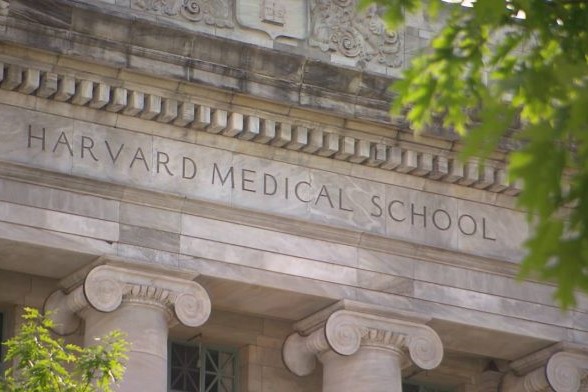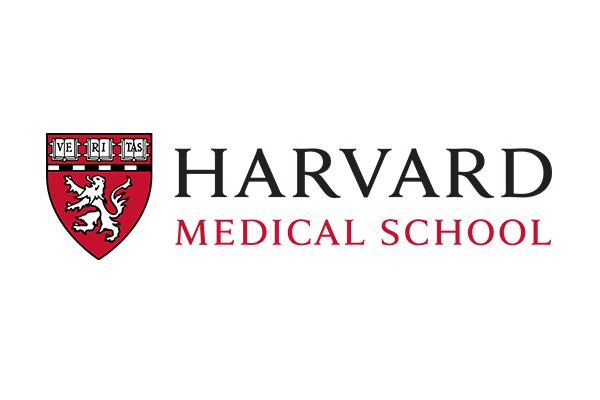
ECMO in patients with severe COVID-19: Harvard Medical School on extracorporeal membrane oxygenation
Harvard Medical School on the role of ECMO oxygenation in patients with severe COVID-19: a highly relevant scientific study
COVID-19 has caused more than 2 million deaths worldwide since the World Health Organization declared it a pandemic in March 2020.
Patients with severe COVID-19 frequently experience respiratory distress and require assistance breathing.
Harvard Medical School on the role of ECMO oxygenation in patients with severe form of COVID-19: a highly relevant scientific study
For patients whose lungs are so injured that even a ventilator is unable to deliver enough oxygen, extracorporeal membrane oxygenation (ECMO)—which does the work of the lungs by removing carbon dioxide and adding oxygen to blood outside the body—may improve the odds of survival for certain patients with severe COVID-19.
A study by Harvard Medical School researchers at Beth Israel Deaconess Medical Center and Brigham and Women’s Hospital provides new evidence that critically ill patients with COVID-19 who were treated with ECMO had better odds of survival than those who were not treated with ECMO.
The findings, published in Intensive Care Medicine, represent the only published study to investigate ECMO’s efficacy for treatment of critically ill patients with COVID-19.
“ECMO gives patients’ lungs time to heal when we’ve exhausted every other aspect of care for these patients.
It can be a bridge to recovery,” said corresponding author Shahzad Shaefi, HMS assistant professor of anaesthesia and co-director of the ECMO program at Beth Israel Deaconess.
SHAEFI: “ECMO’s efficacy in the context of COVID-19 remains unclear”
“This work sheds new light on that question in the most robust way possible during the COVID-19 pandemic.”
The team analyzed observational data from STOP-COVID (Study of the Treatment and Outcomes in Critically Ill Patients with COVID-19), a multicenter cohort study of patients with COVID-19 admitted to intensive care units at 68 hospitals across the United States.
Spearheaded in March 2020 by senior author David Leaf, HMS assistant professor of medicine, the STOP-COVID dataset includes more than 5,000 critically ill adult patients and depended on a dedicated volunteer workforce to collect more than 800 individual data elements per patient, all by manual chart review.
Leaf is also director of clinical and translational research in acute kidney injury in the Division of Renal Medicine at Brigham and Women’s.
“This was a remarkable grassroots effort involving more than 400 research assistants, medical students, residents, fellows, and attendings across the United States collecting this data manually during the height of the pandemic,” said Leaf.
“People were highly motivated to get this database assembled, as it represents the best data we have about critically ill patients with COVID-19 in this country.”
Overall, the scientists found that 190 of the 5,122 critically ill adults (3 percent) admitted to the ICU with COVID-19 between March 1 and July 1, 2020, received treatment with ECMO.
Among those 190 patients, nearly 70 percent survived to hospital discharge or at least 60 days following ICU admission.
Usefulness of ECMO in Covid-19: target trial emulation as a method of analysis
Shaefi, Leaf, and colleagues delved deeper into the data using an analytic technique called target trial emulation, which allows researchers to use observational data to infer causality when randomized controlled trials are unavailable.
By this method, the researchers examined selected patients with severe respiratory failure, defined as those with a very low ratio of oxygen content in their blood divided by the amount of inspired oxygen delivered by the ventilator.
They found that patients treated with ECMO in the first seven days of ICU admission had a considerable reduction in mortality compared with those who were similarly ill but who were not treated with ECMO.
Specifically, among the 1,297 patients eligible for the target trial emulation, just over a third of the 130 who received ECMO died, compared with nearly half of those who did not receive ECMO.
“These findings are not only statistically significant, but very clinically meaningful,” said Leaf.
“They show a considerable magnitude of benefit with ECMO, a 45 percent reduction in death, among the sickest patients.
That’s very compelling evidence that ECMO saves lives.”
“The real question with ECMO is, are we saving lives, or, candidly, are we prolonging poor outcomes and death,” said Shaefi.
“The benefit of ECMO prevailed across all of our analyses. In the absence of a randomized controlled trial, which traditionally have been very difficult to cleanly do in ECMO, this work represents perhaps the best current evidence we have of the role of ECMO in treating select critically ill COVID 19 patients.”
ECMO (Extracorporeal membrane oxygenation) in patients with severe respiratory failure from COVID-19:
Shaefi2021_Article_ExtracorporealMembraneOxygenatRead Also:
COVID-19 Patients: Does Inhaled Nitric Oxide During Mechanical Ventilation Give Benefits?
Rare Congenital Thoracoschisis: First Pediatric Surgery At The German Hospital Of Jeddah
COVID-19 Pneumonia, Harvard Medical School Study On The Biphasic Course Of Infection
How The Royal Danish Air Force Is Enhancing Clinical Care In The Air?
COVID-19 And Pregnancy, A New Study On 1,471 Women And Newborns From The University Of Pennsylvania
Nasal Cannula For Pre-Oxygenation & Apneic Oxygenation: How To Do It



